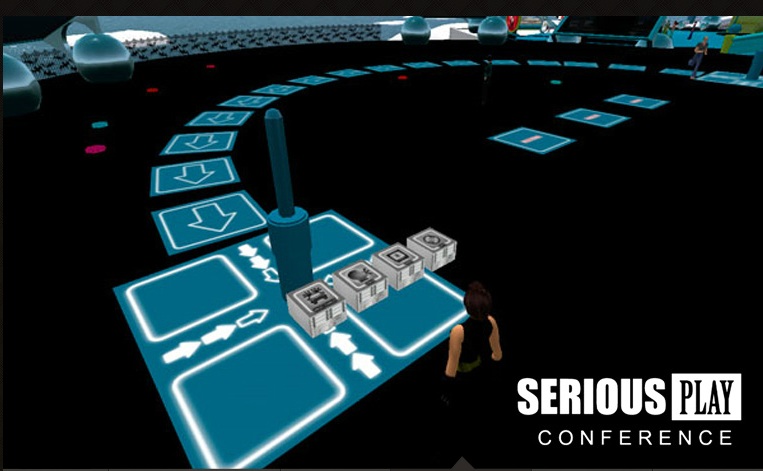
This week, I’m off to the SeriousPlay conference, another once of my favorite organizations in the Games for Good movement. (My other favorites are Games for Change and the Games, Learning and Society conference, which I STILL Haven’t been to!)
SeriousPlay is seriously awesome. Last year Jesse Schell was a speaker- and he was inspiring as always. But I think the most inspiring thing was watching him in the hallways on calls and on his laptop feverishly managing his Schell Games team to get games out the door- just like the rest of us. We’re all putting in the hours to get good stuff into the world!!
So that said, for this Serious Play conference I wanted to talk about PLATFORMS— to increase our efficiency and flexibility in getting that good stuff out into the world. I think platforms give us the ability to get MOAR good stuff out there. You may say “what is a platform?” Fear not- I’ll go through all the basics.
So what’s a platform?
When you build a game, there’s a million ways that you can do it but I like to boil it down to two main approaches
#1: You can hire a team and build something unique from scratch. This is awesome when you have either an in-house dev team, a genius volunteer developer or gobs of liquid cash to hire a really good for-hire dev team to work with you.
#2: You build off of an existing online platform and customize the content to make it unique. This is great when you’re short on resources but long on ideas- and who isn’t?
But since a picture tells a thousand words. Building from scratch looks like this:
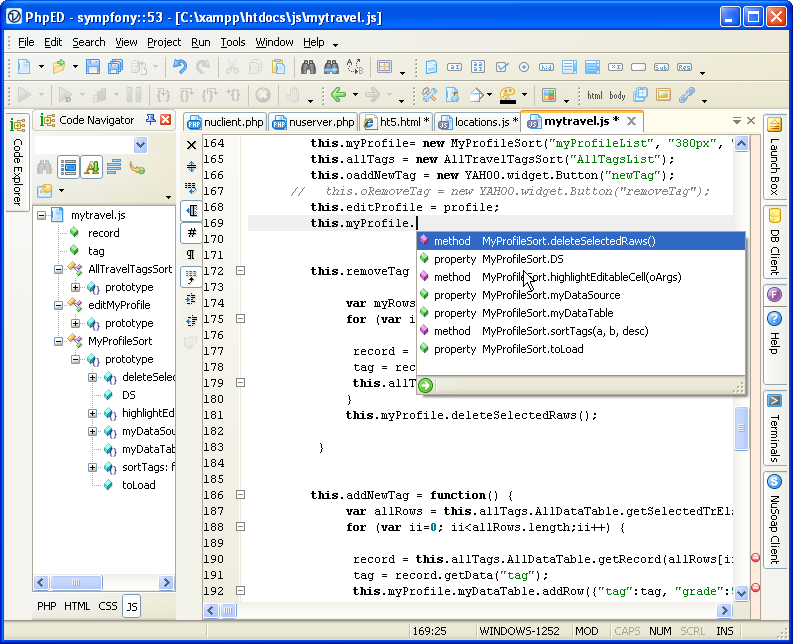
Building on a platform looks like this:
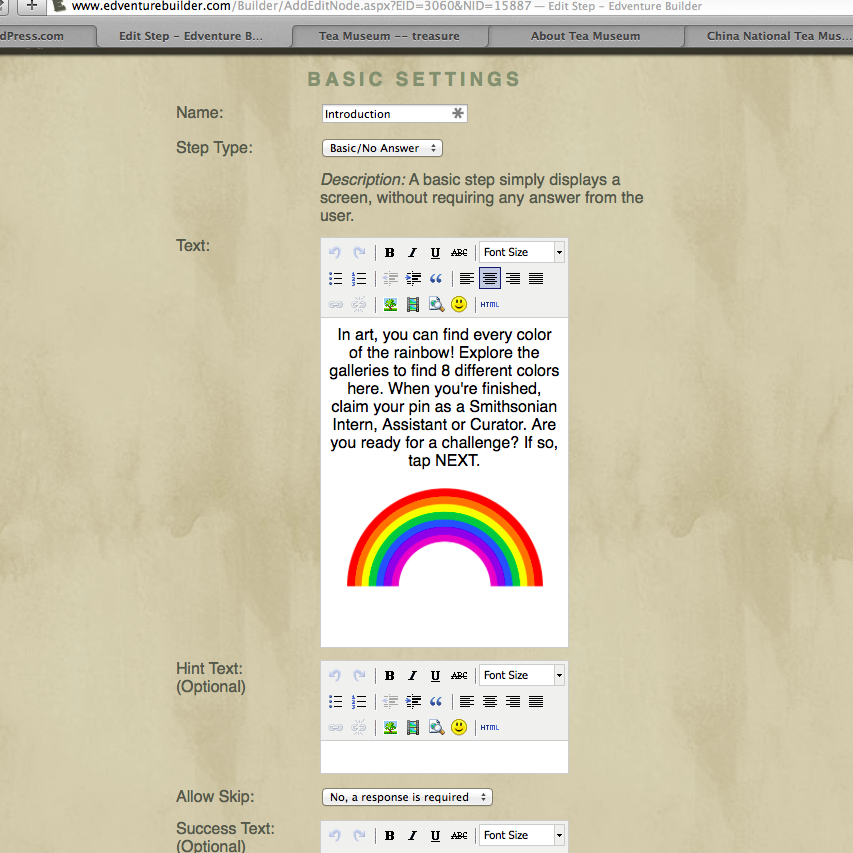
Platform Projects vs. Custom Built Projects

So there’s a lot to be said for a custom-built project. Most of the big-deal projects that you see are custom built. Things like Candy Crush, Angry Birds, Portal, Minecraft, big AAA games- these are all custom-built projects with an in-house dev team. If your kid is paling a game by Disney or Toca Boca, that’s custom-built.

But you might be surprised about some projects that ARE built off of platforms. Murder at the Met was built off of a platform (TourSphere/On-Cell) as was Planet Mania (the Baltimore Science Center built their own platform) as was Play the Past (Aris). Pretty much every indie game out there right now is built off of a platform called Unity. Unity is so complicated that it might as well be a programming language but technically, it’s still a platform. Some very big brands like Ebay and Yahoo, groups that have plenty of cash- but still choose to keep their blogs on a platform, WordPress: http://www.wpbeginner.com/showcase/21-popular-brands-that-are-using-wordpress/
Why would I use a platform?
The fact that Ebay and Yahoo use a platform for their BLOGS is a tip-off. Platforms are really best if you expect to have to change or edit or update your content. (Which, when you’re any sort of educator is pretty much always.) Platforms are usually created to be simple enough that anyone can get in there and add change or update content: you don’t have to hire a developer to custom program every new sentence.
If you’re flexible and creative enough to figure out how to shoehorn quality content into existing frameworks, platforms can cut both your production time and budget in half. MORE than in half. With platforms, I’ve seen really quality projects go out the door in under 2 months. This is possible for custom projects… but highly unlikely.
Last but not least, platforms let your content scale if you happen to be an organization with a lot of content. Say for instance, you build a custom-coded game for your renaissance exhibit. Once you’re done, it’s done. But if you happened to build that same project on a platform, now you know how it’s done and you can rotate your content monthly and make similar games with content from other exhibits. You can even edit it if new pieces come into your collection or make change if you find (God forbid) that visitors are responding to a different part of game than you’d predicted.
Why would I not use a platform?

Sometimes you have a very clear idea of what it is that you want. (I want Angry Birds with asteroids. That is what I want, I will be seriously bummed out if what I get is not exactly that.) Platforms force you to be super flexible with your content. Most platforms will work with you to try and make their platform do what you need it to do but a certain amount of flexibility is essential or else you’ll go crazy trying to fit a round peg into a square hole.
What are some platforms I should check out?
App-Builders:
An App-building platform is usually an online site that will let you drag-and-drop content and then publish it to an app or mobile website. My app-building platforms of choice are TourSphere (Now On-cell) and Tapwalk. On-cell lets you build out great interactive stories with beautiful visuals. Tapwalk has a pretty robust background engine to let you build content-heavy mobile interactives. We’re building a great game with TapWalk now that’s similar to a “Where in the World is Carmen San Diego” with probably over 400 screens and multiple, multiple pathways. It would’ve taken a ridiculous amount of time and money to custom code it. YAY platforms!!
Site-Builders:
Okay so this isn’t exactly for games (I guess technically neither is an app-builder) but if you have an idea for something that you want to include in your game or interactive project, you can create a quick blog or website on WordPress or Squarespace. There are a million others like Wix or Weebly as well but I think WordPress and Squarespace are the easiest to work on. One of the projects I’m working on decided we wanted to have the characters blog and use the website as a way to unlock information. It’s really easy to build something like that on WordPress, all you need is content and some time to build it.
Text-Based Story Builders
Did you ever play one of those 1990 room-escape text-based computer games? The text describes everything “you’re in a room, you see a table, a desk and a window” … the curser waits. You type “open the window” it responds “the window is locked”. You can build these! Quest is a free online platform that will let you create exactly these choose-your-own adventure stories. For a mobile version, try something like Guide By Cell, the platform that Rev Quest at Colonial Williamsburg. http://www.colonialwilliamsburg.com/do/special-events/revquest/

Mobile Games
Full disclosure: I built a platform. I did. It’s the Edventure Builder and it’s awesome and I love it. I am not objective about it. There’s a floating balloon that I will not pretend not to be completely enamored with: www.edventurebuilder.com. The Edventure Builder does all the things that I need it to do- it’s a fast, flexible jack-of-all trades mobile web platform. It was not built to be drop dead gorgeous, it was built to be a workhorse of a platform and you can build pretty much anything on: scavenger hunts, choose your own adventures, interactive stories, quizzes, personality tests, all sorts of stuff. Here are a few games you can play with it: www.edventurebuilder.com/americanart, www.edventurebuilder.com/filive, www.edventurebuider.com/joslyn.
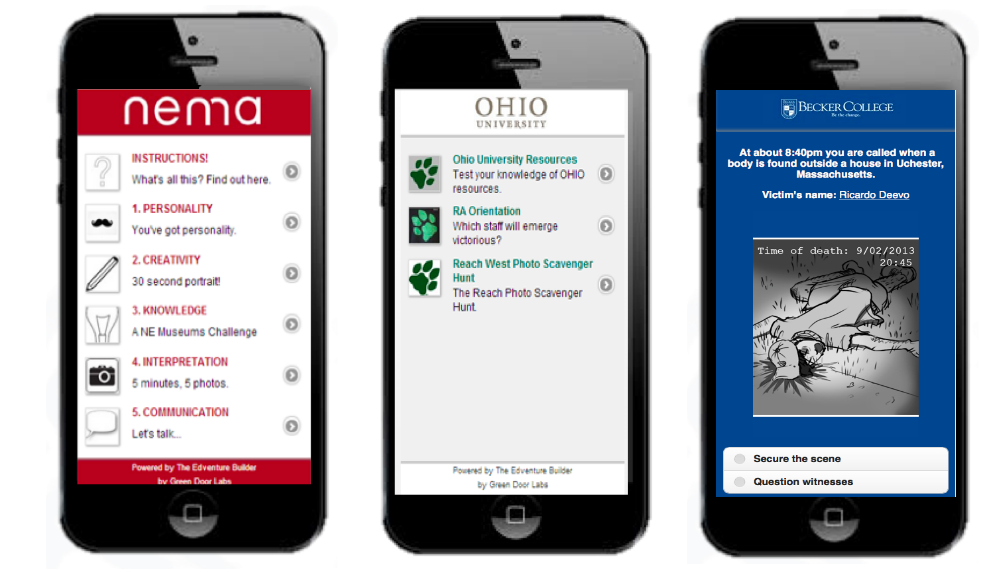
But I’d be totally dishonest if I said the Edventure Builder is the only story-based mobile game building platform out there- we’re just the one that does what I need. Others are Stray Boots https://www.strayboots.com , a great scavenger hunt company that started as content creators and now they let you build content. There are a bunch of fun apps that will let you build uber simple scavenger hunts like Museum Hunt or Aware Square http://playawaresquare.com
Video Games
Say you want to build an actual sprite-based video game: a Toca Boca or a Candy Crush of your own. You can do that! Game Salad is a good place to build some really simple image-based games, though it takes maybe an hour or two to figure out. Scratch is a platform that you can get up and running on ASAP but the games will be really basic. Construct2 is pretty straightforward to build on and lets you include some nice graphics. Here’s an overview of game building engines for Indie Gamebuilder: http://nuverian.net/2011/01/17/the-best-game-engines-for-indie-game-developers
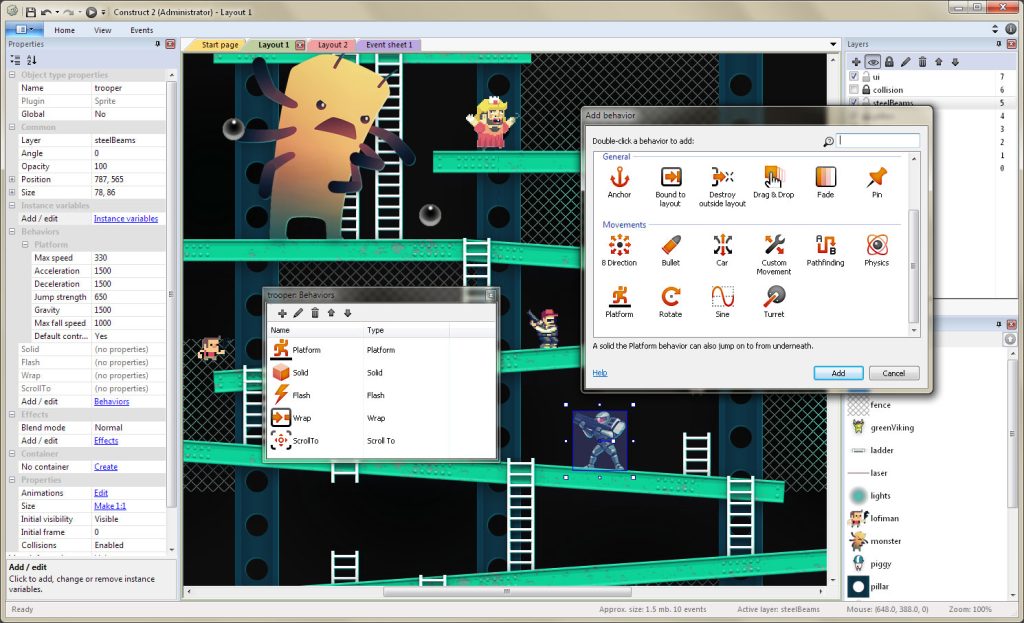
So out of all of these, what can you start playing with NOW??! Good question! Quest is free and you can get in right away. Edventure Builder is a licensed platform but you have some connections (me!) so I’d be happy to set you up with a tester if you want to play. Scratch is completely free and you can start building with it instantly. The others take a little more time and effort to learn how to build with but definitely all worthwhile. Did I miss any platforms? Have you built with any of these and what have your experiences been?? (Especially the video games, I have yet to build a full game on any of the video game platforms and I’d love to hear about it if anyone went through the soup-to-nuts process!)
So what are you waiting for??! Go build a game!!


Leave a Reply